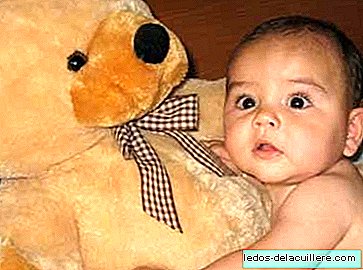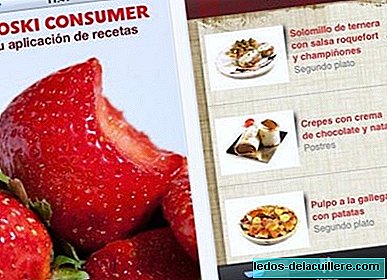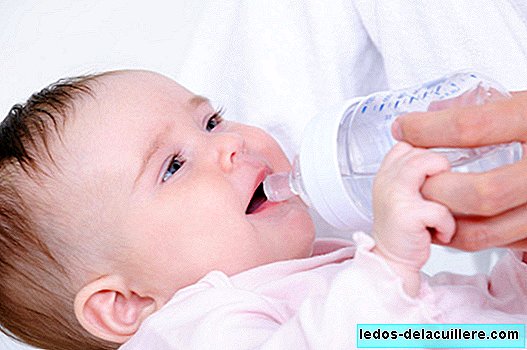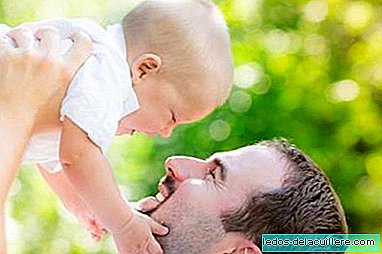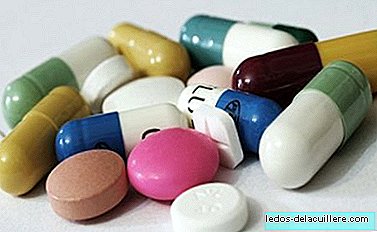Intestinal parasitic infections, commonly known as "worms," cause a considerable number of infested children in any country. If our child is irritable at night, with discomfort, we will have to check the anus and stool because there it is the key to knowing if my child has worms.
Most young children have worms at some time. How do they occur? Can they be prevented? Which is the treatment? Then we tell you all about this annoying contagion that, fortunately, is not serious and has a solution.
The most frequent intestinal parasitosis in our environment are those produced by earthworms or pinworms "Enterobius vermicularis". They are intestinal infections that can be caused by the ingestion (or inhalation) of protozoan cysts, eggs or worm larvae.
It can appear at any time in life, but the greatest number of cases occurs in children between five and 14 years. According to the Spanish Association of Pediatrics, pinworm infection affects 40% -50% of schoolchildren.
After entering the mouth, the eggs pass through the digestive system, hatching in the small intestine, from where the worms larvae advance until they reach the large intestine. After a few weeks, the worm females progress to the end of the digestive system and leave the body, usually at night, to lay eggs.
The eggs through a special secretion adhere to the margins of the anus and surrounding skin. From here, it is possible to restart a contagion (if the child scratches and then puts his hands to his mouth). This process usually takes one to two months.
When it reaches the anus and comes out with feces, the length of the pinworm can reach about ten millimeters, enough to be captured by the human eye and we recognize it by its thin and elongated shape and its white color. But, How to suspect that my son has worms before seeing them?
Symptoms of worms in children
The main symptom of a child with oxyuriasis is itching and pain in the anal or genital region. This symptom manifests itself especially at night, which, as we have said, is when the worms leave the anus. This fact usually causes children irritability, restless sleep, bruxism (clenching and grinding teeth) and disorders such as nightmares and even sleepwalking.
Itching can also spread to the area of the genitals, which are irritated and inflamed by scratching. Sometimes there is also superinfection of the small wounds that are made with the nails. In girls they can reach the vagina or urethra. It results in vaginal irritation with itching, discharge or discomfort when urinating (less frequently).
If we observe these symptoms, the perianal area of the child must be carefully checked, separating the buttocks and with good lighting. We can also check the feces, where worms are frequently observed, such as small fine white threads that move (between 0.5 and 1 centimeter).
Among the false symptoms of worms are abdominal pain, low weight gain, lack of appetite, anemia, tiredness ...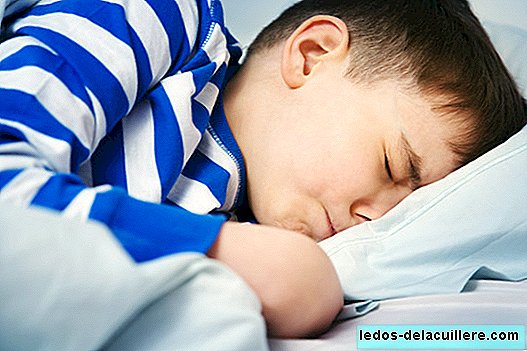
How is the child infected with oxyuriasis?
It should be noted that these intestinal worms spread easily. The egg transmission vehicles are:
Mainly the hands of children, since they often scratch the affected area, due to the irritation they feel. What happens from there is that the microscopic eggs adhere under the nails and a self-induction can occur: the contaminated fingers end up in the mouth, and from there they re-enter the body and restart the transmission process. Therefore, it is important to repeat the treatment as we will see below. From the anus if the eggs remain long enough to hatch, the larvae will be introduced back into the digestive system.
Eggs can end up deposited on surfaces such as dirty clothes (underwear, pajamas), bedding, towels ... Also in the toilet, in toys ... and in all objects that the child can touch with infected hands (desks, furniture ...). In these places the eggs can survive up to two or three weeks.
Foods infected by irrigation with sewage.
The polluted atmospheric dust.
Eggs can also be laid in the sand of parks and playgrounds, swimming pools, classrooms ...
This type of intestinal worms only affect humans and neither proceed nor develop in domestic animals. Nor is the intake of sweets related to the appearance of worms.
What treatment should be followed to end the worms?
There is a simple and effective treatment to kill worms. It is not true that worms are difficult to eliminate, but if the treatment is not done well, they can reappear.
The pediatrician will recommend the medication that, orally, kills adult pinworms after a single dose. However, none of the existing medications eliminates the eggs, which can re-hatch or infect the child and all the people who live with him after a few weeks. Therefore, it is very important to repeat a second dose of medicine two weeks later and treat the whole family.
To calm the child's discomfort You can dip it in the bidet in warm water for a few minutes.
It is recommended that infected people bathe in the morning in order to remove eggs that were deposited in the anus overnight.
How can you prevent oxyuriasis and its spread?
Thanks to simple measures earthworm reappearance and even initial infection can be prevented.
It is advisable to wash your hands frequently, especially before eating and after going to the bathroom or changing diapers, when returning from the park and school ... It is a good practice to be carried out by the whole family.
Cleaning your nails with a brush completes hand hygiene.
With short nails, the child will not be hurt by scratching and eggs or dirt will not accumulate.
Do not bite your nails.
Clean the baby's diaper area well or when it grows, after using the bathroom. It is essential not to transmit infections the intimate hygiene of children.
Change underwear daily.
As we have said before, it is inevitable that the child scratches the affected area and with contaminated hands he can spread the pinworm eggs again and infect other people or self-infect. Thus, if the infection has been detected, after consulting the pediatrician and starting the treatment, all the child's clothes must be washed with hot water (not shaken), the bedding, disinfect the bathrooms ... A closed pajamas prevents the child from touching the anus and spreading the eggs .
Photos | iStock
More information | MedlinePlus, Family and Health
In Babies and more | Oxiuriasis: the child has worms, do trinkets really cause worms in children?


